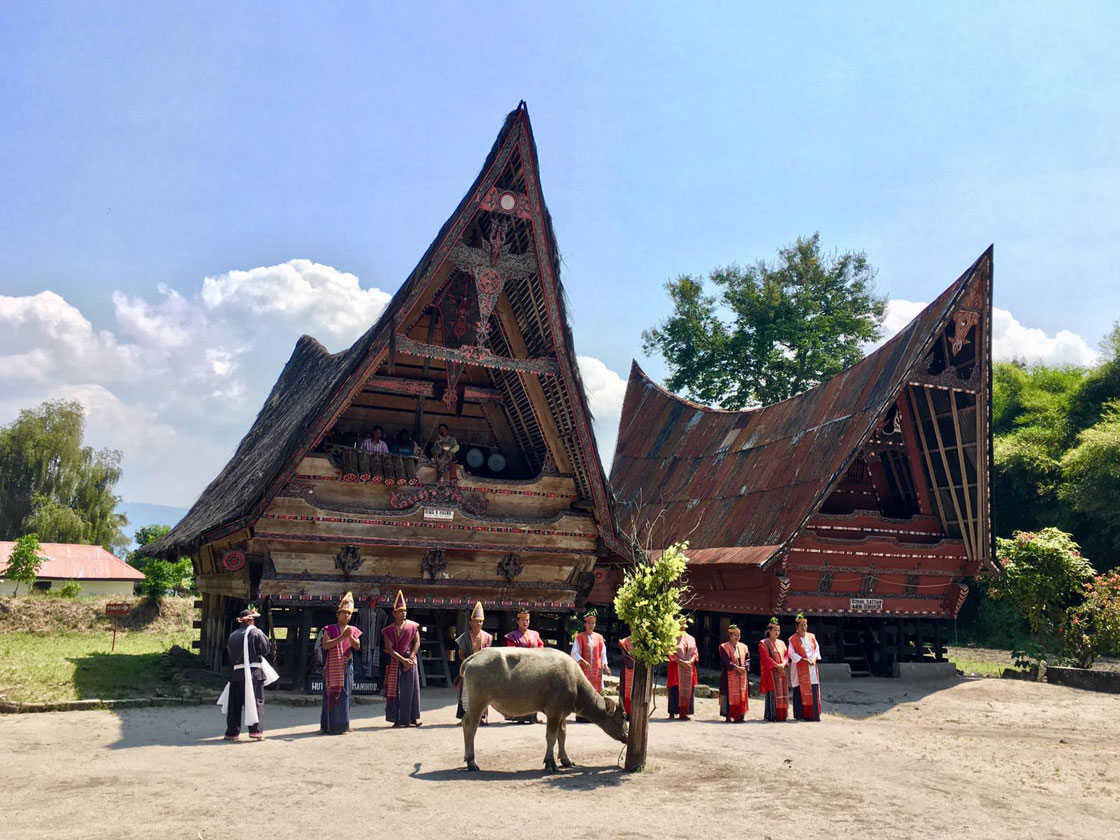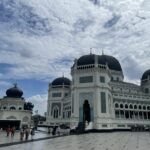Planning on visiting Sumatra? We feel you. Once you start researching about the biggest island of Indonesia you will find info on beautiful beaches, orang utans or lush rainforests. But you might also find people telling about being ripped off at the Pinang Baris bus station in Medan, crazy local busses, a lack of ATMs or locals who don’t speak English. And yes these stories are true.
But we can assure you, that if you decide for a vacation in Sumatra you will be rewarded with relaxation or adventure (or both), friendly locals, great food and a good time. As always a good preparation is all you need and therefore we created this travel guide for Sumatra.
Christine has travelled Sumatra solo many times, and Syafri was born and raised in Bukit Lawang (Read more about us here). So the info gathered is mostly first hand experience.
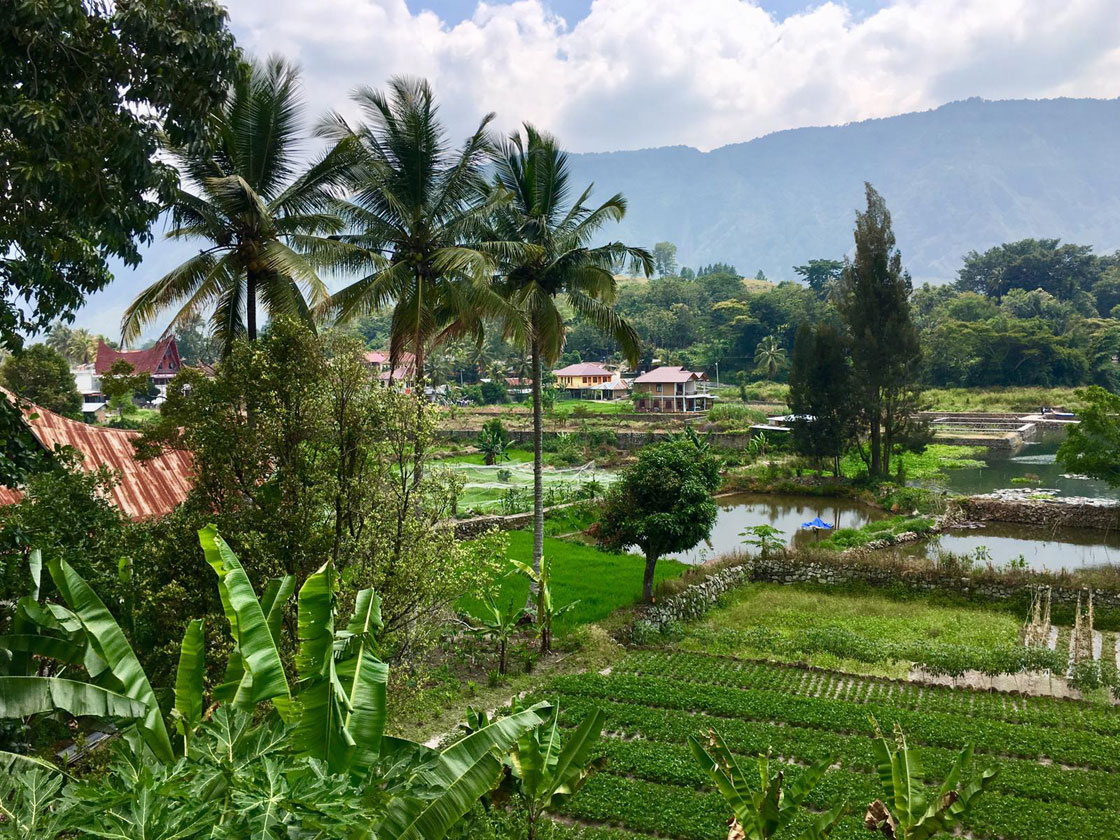
About Sumatra
An exotic island in western Indonesia and a part of the Sunda Islands, Sumatra is the 6th largest island with an area of 473, 481, twice as much as that of UK. In ancient times Sumatra was known by Sanskrit name of Swarnadwīpa meaning “Island of Gold” due to vast deposits of gold in the island’s highland.
Because of its vast spread out land, Sumatra is divided into 7 Propinsi (provinces) of North Sumatra, Jambi, Riau, West Sumatra, South Sumatra, Bengkulu, Lampung and Aceh. Among which the prominent cities are Medan, Palembang and Padang while the most populated among these is Medan where throngs of tourists keep hitting the city every now and then.
Sumatra has so much to offer for travellers – deep rainforests, animals like orangutans, elephants or tigers, refreshing rivers and lakes, volcanoes and sandy beaches. Most people come to Sumatra for the orangutans. Besides Borneo, Sumatra is the only place in the world to see orangutans in the wild.
Read also: Why you should go to Sumatra
How touristy is Northern Sumatra?
The most “touristy” areas are Bukit Lawang and Lake Toba, but compared to hot spots like Thailand and Bali they are basically untouched! Tuktuk on Samosir Island at Lake Toba is very well set up for tourists, but in fact it is hardly really busy. I (Christine) have been there many times and it often it feels like a ghost town. Bukit Lawang also is used to tourists, but nowhere near crazy. Also during the day most people are trekking in the jungle and you can relax in the beautiful village or chat with the friendly locals. Aside from these two areas, tourism is not a focus for most of the area, and still so many amazing places to explore.
Getting here and around
Medan is the main hub for flights onto the island. But most major cities on Sumatra, such as Padang or Banda Aceh, have international airports with connections to Kuala Lumpur, Bangkok or Singapore.
Travelling around Sumatra is sometimes difficult. The island is huge, the roads are bad and busy with lorries and motorbikes. Public transport is limited and an adventure in itself. Get prepared for endless hours in packed busses with drivers driving like crazy. Flying is the most convenient way to cover long distances on Sumatra.
There are varying options to get around Sumatra, including private drivers, tourist busses (shared cars) and local busses. Becaks (tuktuks) are mainly used to get around cities and villages. You should definitely get a ride on these transports to get a taste of real Sumatran culture, but make sure to bargain for the price.
Local mini busses are the cheapest way to get around, but this is everything but a comfortable journey. The mini busses have no air condition and can get very cramped. You will be sitting very close to others. There is no real legroom. Many people don’t speak English, but are always friendly and maybe want to take a photo with you. The roads can be bumpy and the bus stops frequently to collect and drop off passengers along the way. The driver will mostly put your luggage on the roof, but if there is space you can also keep it with you.
Renting a car is not recommended. The traffic is crazy and the roads are bad. But to be more free you can book a private driver.
Read also: How to get to Sumatra | How to get around on Sumatra
Visas
The visa free entry has been suspended until further notice. Currently there is the Visa on Arrival which can be obtained at any airport, sea port and even online. It is valid for 30 days and can be extended for another 30 days.
Read also: Visa for Sumatra
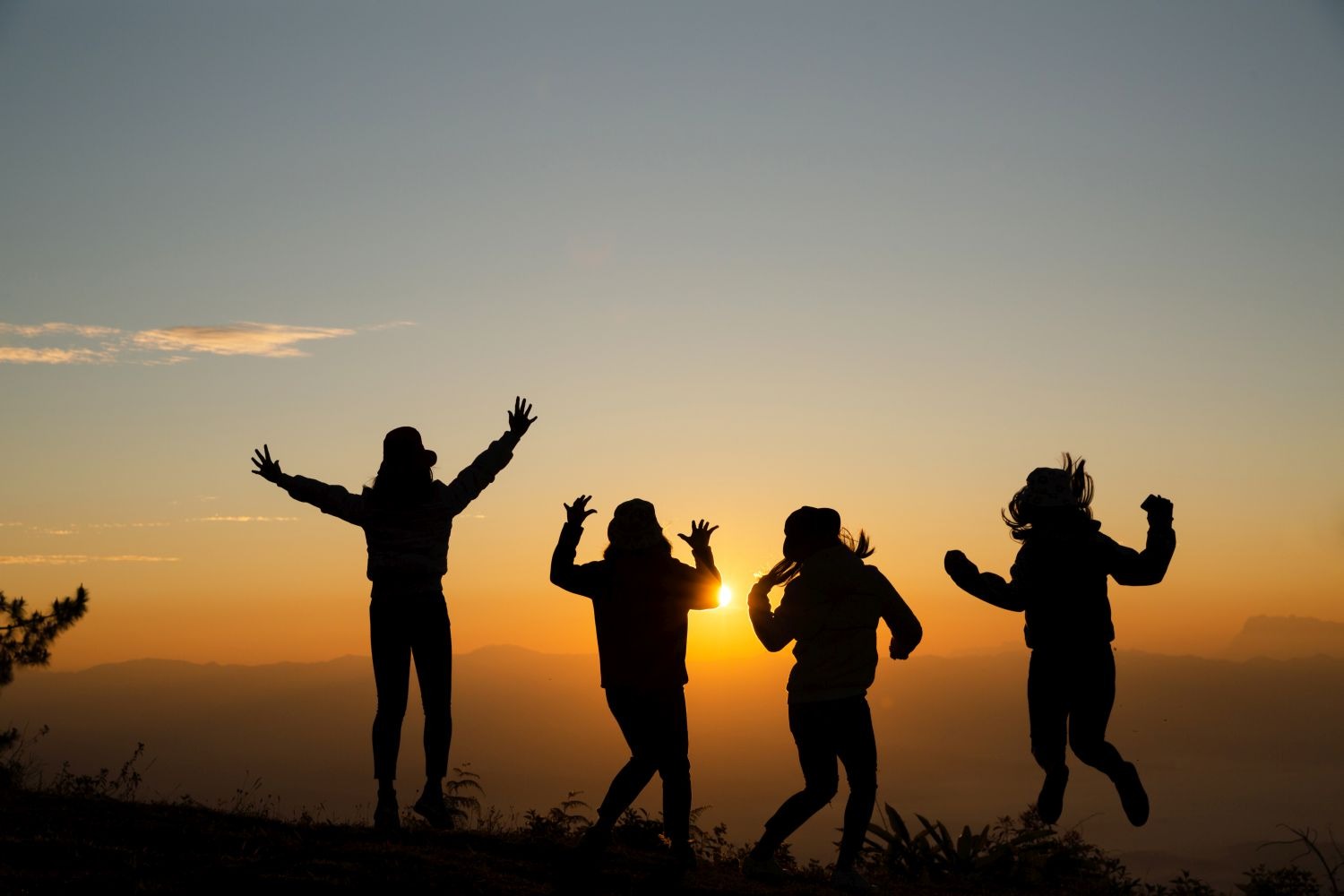
Health
We do not provide specific recommendations for vaccines or any other health-related issues. Please consult your doctor in advance for these matters. Health risks and vaccine requirements may change any time. Therefore please speak to your doctor and seek the latest medical advice.
There are pharmacies in the main tourist areas and bigger cities. There is no hospital on Sumatra with international standard. In bad cases you need to go to Kuala Lumpur or Singapore. So make sure you obtain a travel insurance which covers these costs.
Hospitals on Sumatra:
Columbia Asia Hospital Medan
Jl. Listrik No.2A
Medan
Sumatera Utara 20112
West Sumatra Police Hospital
Jl. Jati No. 1
Padang
Sumatera Barat 25129
24/4 Emergency Room
Hospital Efarina Etaham Pangkalan Kerinci
Jl. Lintas Sumatra No. 1
Pangkalan Kerinci
Riau 28654
Tap water is not safe to drink on Sumatra. Bring a water bottle and you can refill it (sometimes even free) in restaurants or accommodations from big gallons.
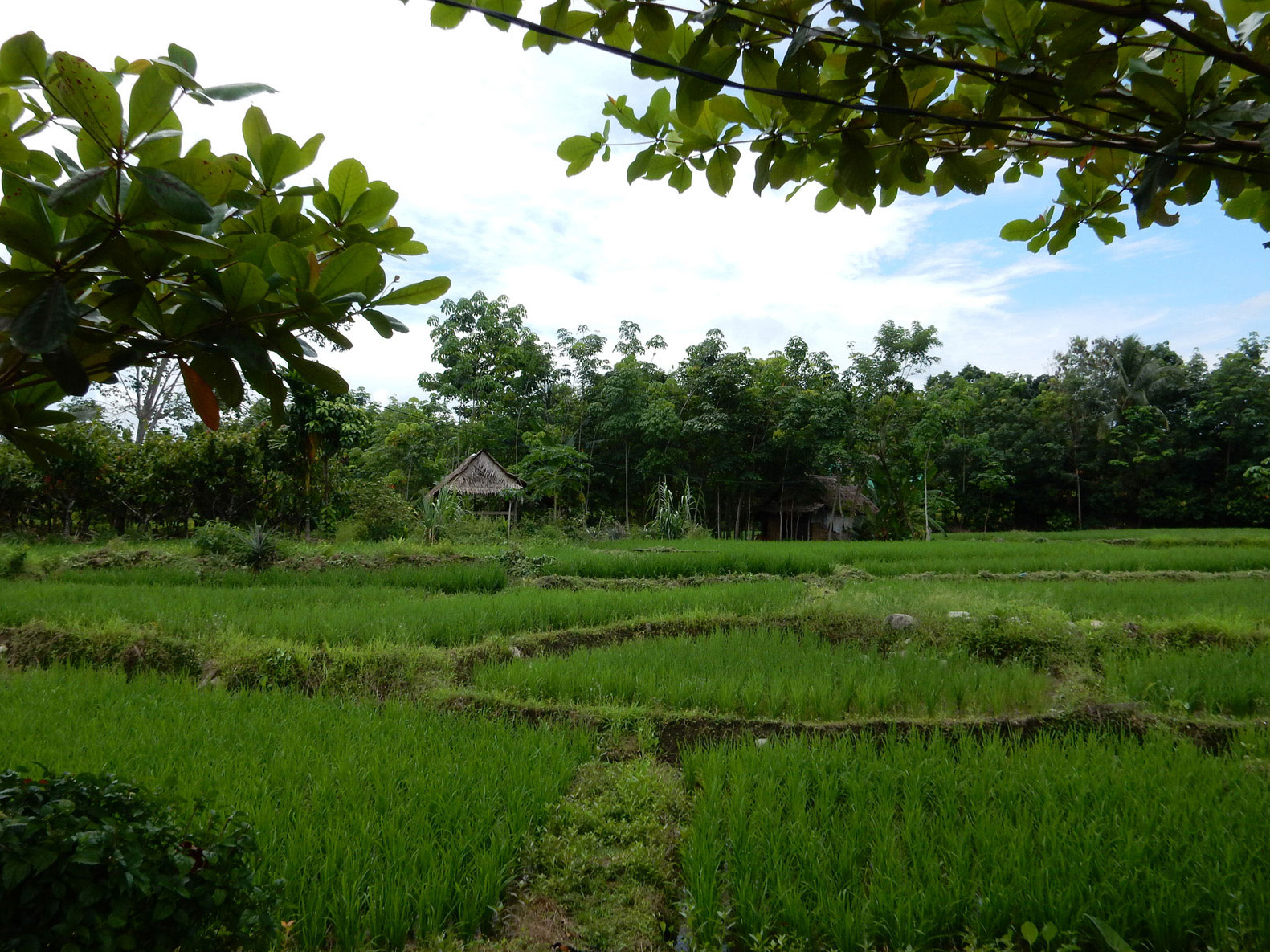
Pack List
Be prepared for all seasons in one day when traveling to Sumatra. The tropical days are humid and hot and we advise light, comfortable cloths. Light rain jackets are a must as there will be encounters with rain. Bring sun screen and hygiene products from home as they can be very expensive on Sumatra. Sun hats and a sarong/scarf can be a plus. See our comprehensive pack list for Sumatra
Best time to travel
Sumatra is a perfect travel destination all year round. The temperature remains between 21°C to 33°C throughout the year. However, the wet season lasts from November to Febuary while the dry season is from May to October. But the inland destinations such as Bukit Lawang or Lake Toba are perfect all year round. There is rain usually just in the afternoon for 1 hour or so.
Money
The currency of Sumatra is Indonesian Rupiah (IDR). Exchange rates vary, but generally 1 EUR equals to around 15,000 IDR. Some examples: a cup of coffee costs 4,000 to 6,000 IDR, a meal in a warung or restaurant around 10,000 to 50,000 IDR.
ATMs on Sumatra are a bit tricky. Sometimes they work, sometimes they don’t, sometimes they are empty and sometimes you can only withdraw 500,000 IDR (hard when you have to pay tours or accommodation). And then there is the casual mati lampu (electricity cut). So we usually advise to either bring cash from your home country or withdraw whenever you can. Multiple credit cards are also a plus. The airports are a good spot to withdraw cash from the ATMS there. If you have a private driver or take a tourist bus, ask the driver to stop for ATMs along the way.
If you book tours, accommodation or transport in advance you can also ask if you can pay via bank transfer or Paypal. With that you don’t have to carry so much money with you when traveling Sumatra. Paying with credit card is mostly only possible in bigger shops in the cities, Indomaret and the like.
Side note: There is no ATM in Bukit Lawang.
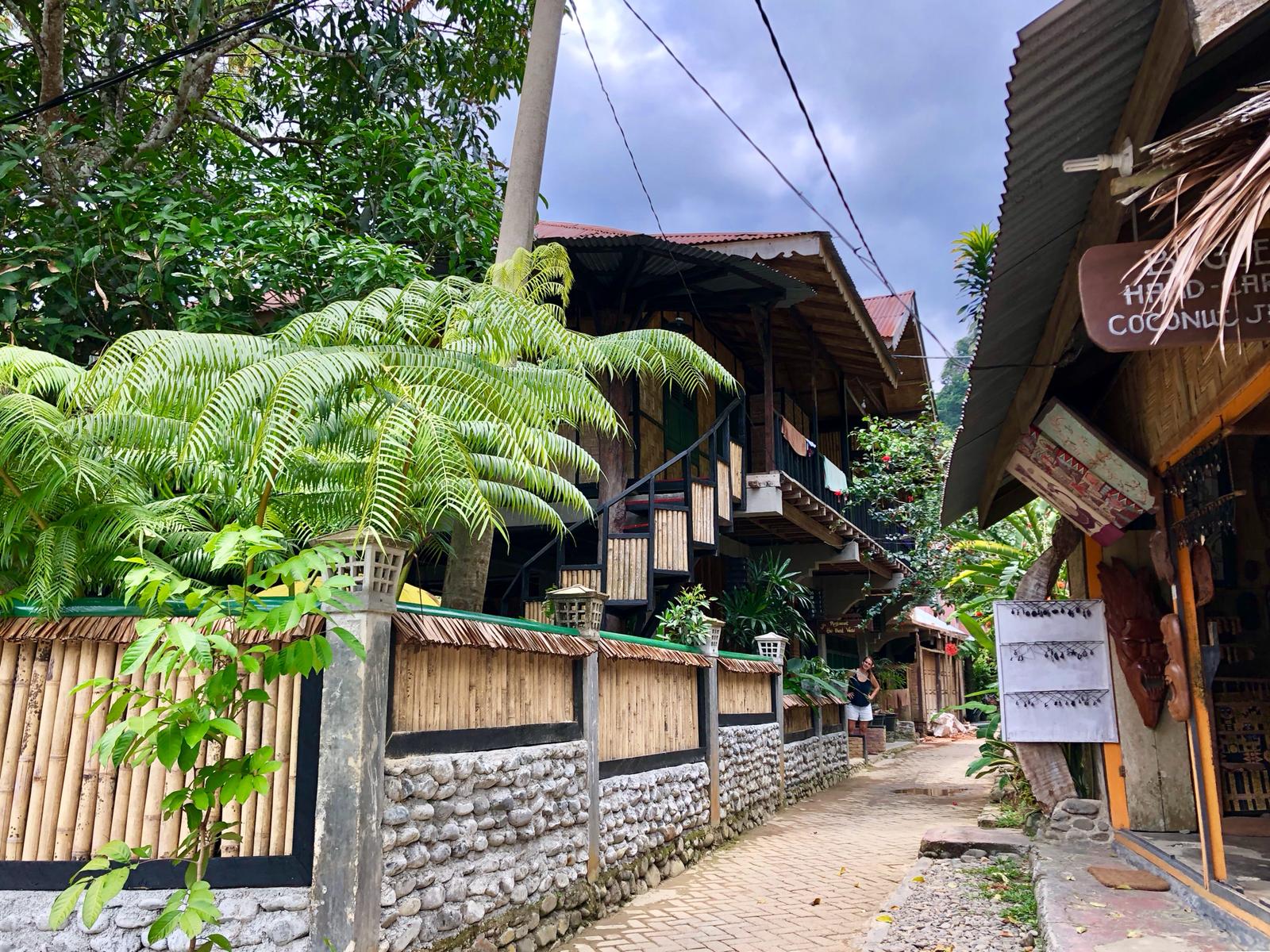
Accommodation
The hotels and guesthouses on Sumatra offer something for every budget – from simple and cheap rooms to expensive hotels. Especially in the high season during the summer months the prices tend to go up. Generally speaking you can get a double room for 250,000 IDR.
Hostels are not really common. You can find some in Medan. But in other tourist destination you can also find cheap rooms for solo travelers. Here other backpackers usually meet, so it is a kind of hostelly vibe.
Be prepared for cold showers throughout Sumatra. Some of the cheap guesthouses will only provide a traditional bucket shower. This is a basin with water and a small bucket. Just use the bucket to pour water over yourself. It sounds strange, but you will get used to it.
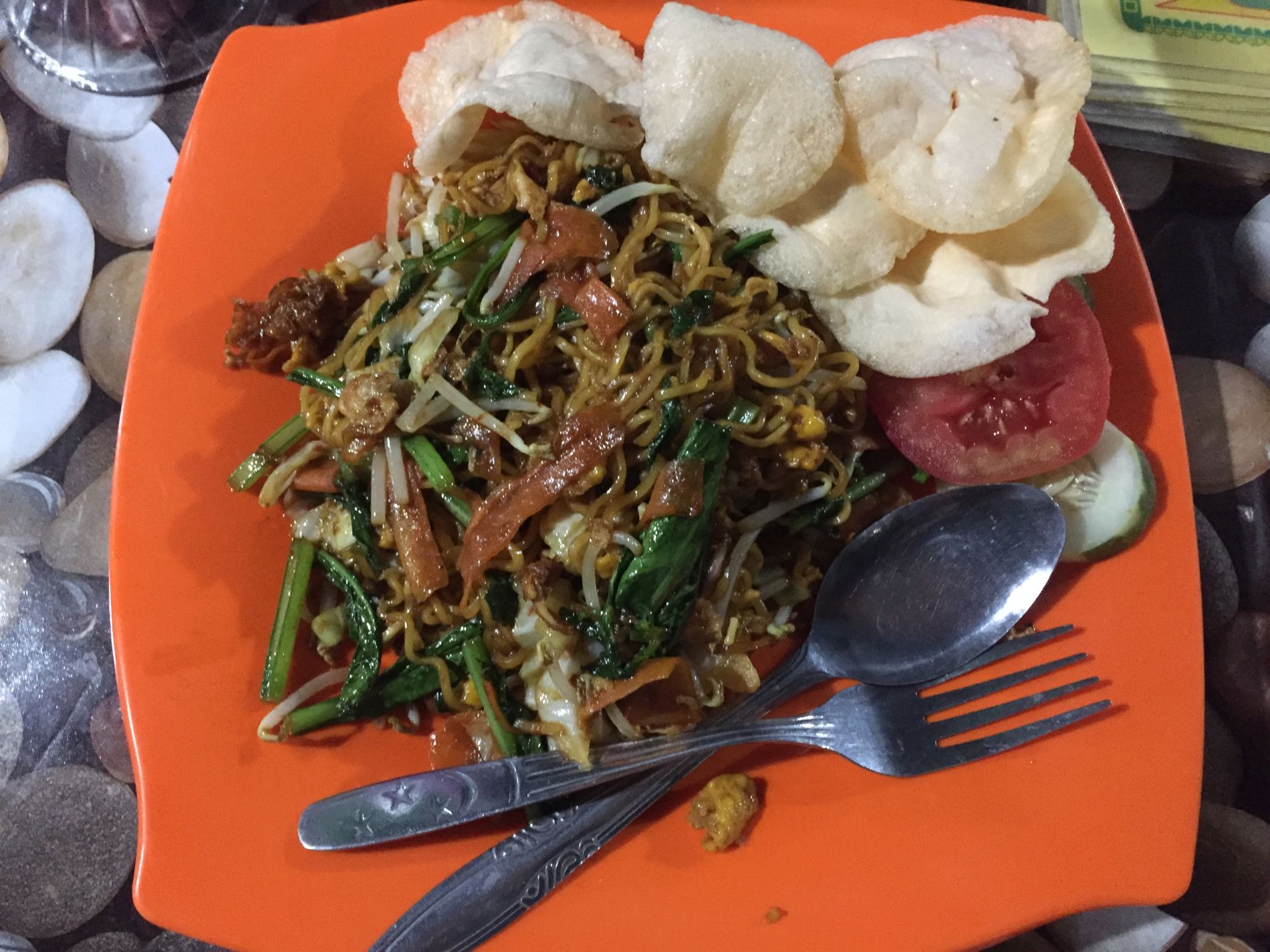
Food
The spicy delicacies of Sumatra are a must taste once in your life. Their speciality is undoubtedly Rendang, Soto, Sambal or Gulai. Padang restaurants are very common on Sumatra. You will see the already cooked dishes in the front window with a fine variation of curries, fish, egg, tempeh and vegetables. Some other famous dishes include Rujak, Gado Gado or Cap Cay.
Read also: Sumatra for foodies
Religion
Nearly 90% of the people in Sumatra are Muslims, which makes Islam as the main religion. The other religions are Christianity, Buddhism and Hinduism.
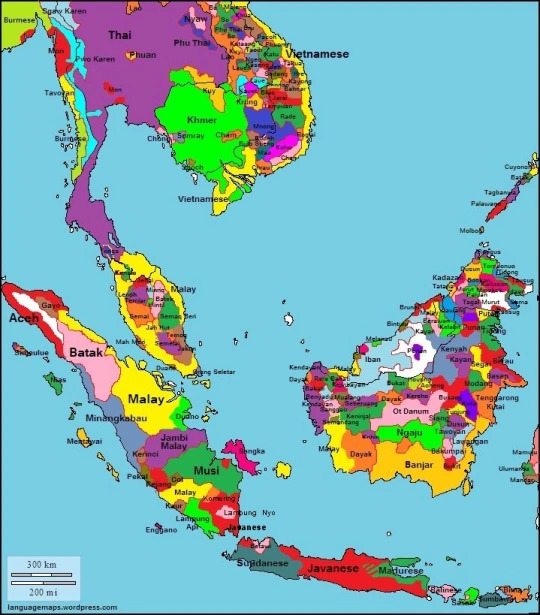
Source: https://sblanguagemaps.wordpress.com
Language
The official language is Bahasa Indonesia, but many regions in Sumatra have their own dialects or even languages. People in touristy destionations do speak English as well, but the more rural you go the less people speak English.
Read also: Indonesian vocabulary for your trip to Sumatra
Crime, Safety & Security
There is no destination without issues. So it is advisable to keep an open eye when on the road in Sumatra. Flight delays and cancellations due to volcanic eruptions can be a problem, but are rather seldom. Taking basic precautions will keep you safe.
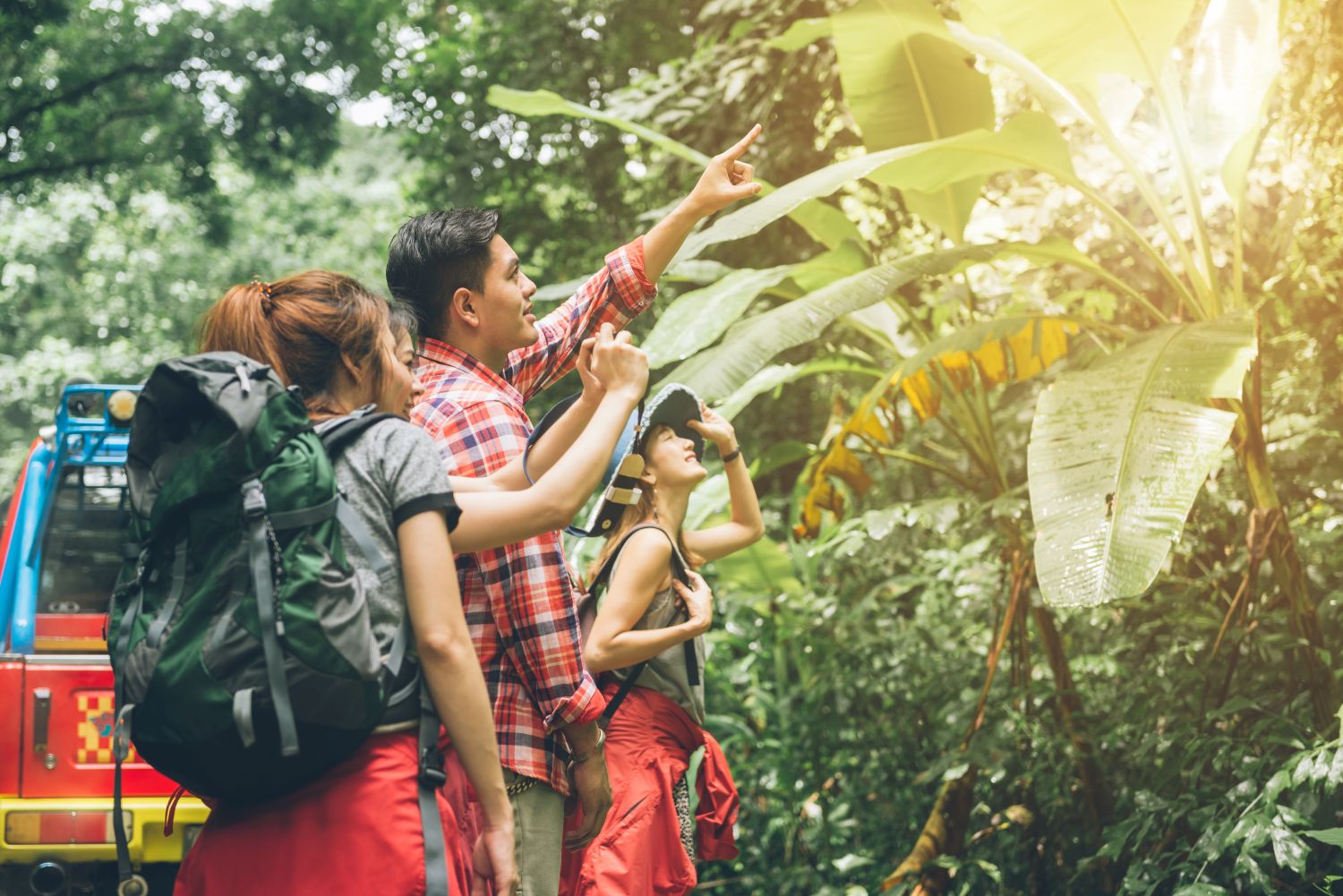
Sim cards and wifi
It seems Indonesia is much more developed when it comes to wifi and data. Every kiosk or warung offers free and good wifi. Also every accommodation in the tourist areas offers free wifi to guests.
Obtaining a sim card has become a bit tricky in the past years. You can easily buy one everywhere, but you need to register your phone e.g. at official Telkomsel or Grapari shops to actually make them work. There is no option at the airports so you have to register your phone in the before mentioned shops in big cities. This is a pain.
A better option is an eSim, if your phone supports that. We can recommend Airalo.
Plugs & Adaptors
In Sumatra sockets are of type C, also known as the standard Euro socket, and F, also known as Schuko. Travelers from Germany don’t need an adapter. For everybody else it is advised to buy a travel adapter in advance, but you can also obtain one when you are in Sumatra.
Travelling with Children
From jungle lessons with locals, to swimming in the rivers and lakes or encounter wild animals, Sumatra has many options for families and is basically a huge playground for your toddlers and children. Travelling with kids on Sumatra can be a feast of adventures, new experiences and smiling faces. Every island of Indonesia is different. Sumatra has its own beauty, and you can see and feel that in its culture, nature, food and people.
Read or full guide for traveling Sumatra with children.
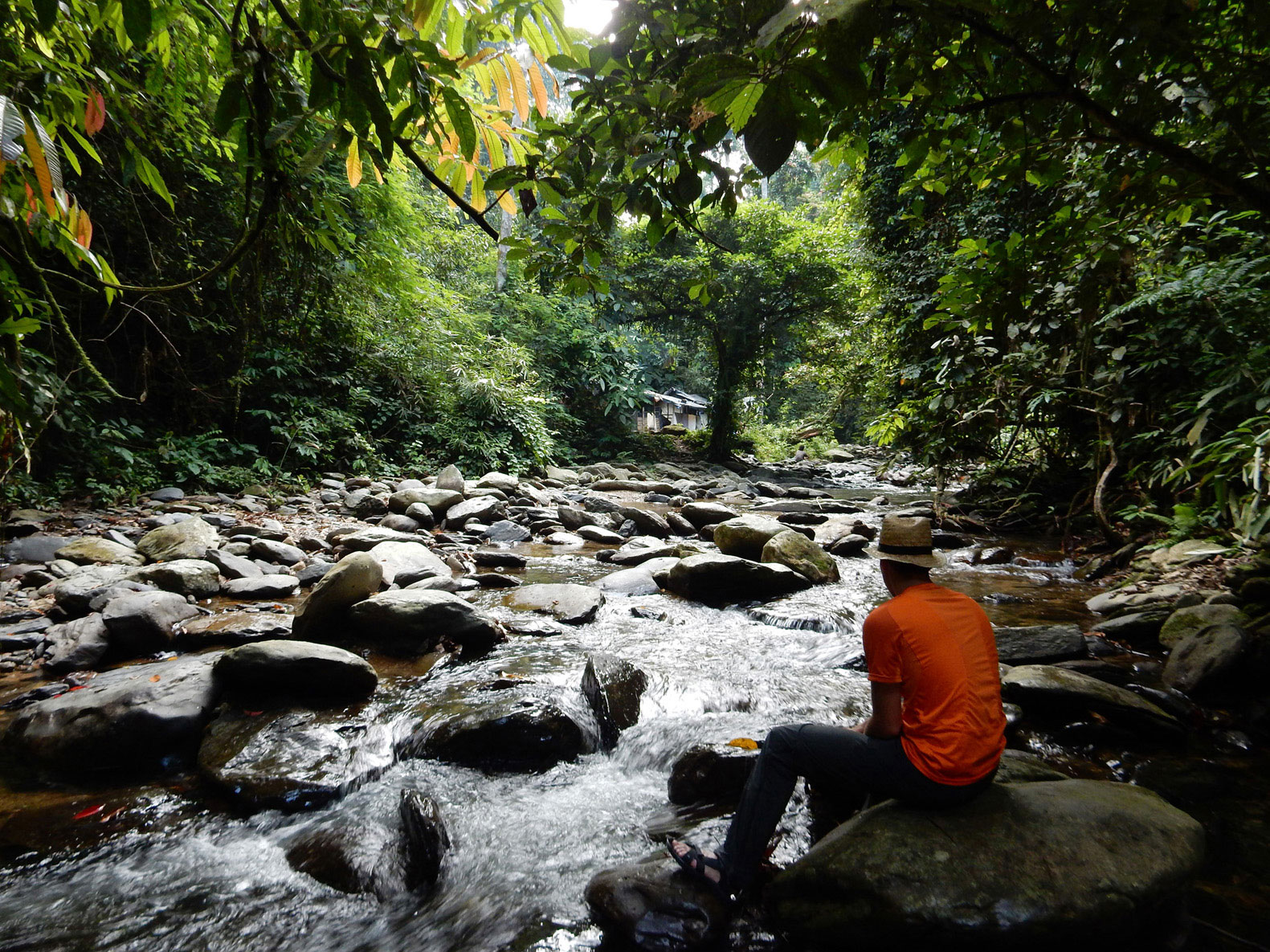
Activities and things to see in Sumatra
Sumatra has so much to offer for everyone. Surfers find good breaks on the islands in the west, divers will love the underwater around Pulau Weh, nature lovers will awe when trekking in the rainforests around Bukit Lawang and the list goes on.
Here are some places and activities in Sumatra:
- Swim or take a boat tour around the largest crater lake in the world, Lake Toba, and also get to know the Batak culture.
- Trek to see orangutans in Bukit Lawang. The overnight stay in the jungle is a truly unique experience.
- Visit Padang to taste the delightful cuisine of Nasi Padang, the special kind of rice served with a range of curries and side dishes.
- Climb the volcano or relax in some hot springs around Berastagi
- Learn about the Minangkabau people in West Sumatra
- Visit Pulau Weh up North to indulge in the beautiful underwater world
The other places of interest in Sumatra are e.g. Banda Aceh, Banyak Island, Pulau Nias, Bukkitingi, Mentawais, Bangka Belitung.
Read also: Top 10 Avtivities in Bukit Lawang
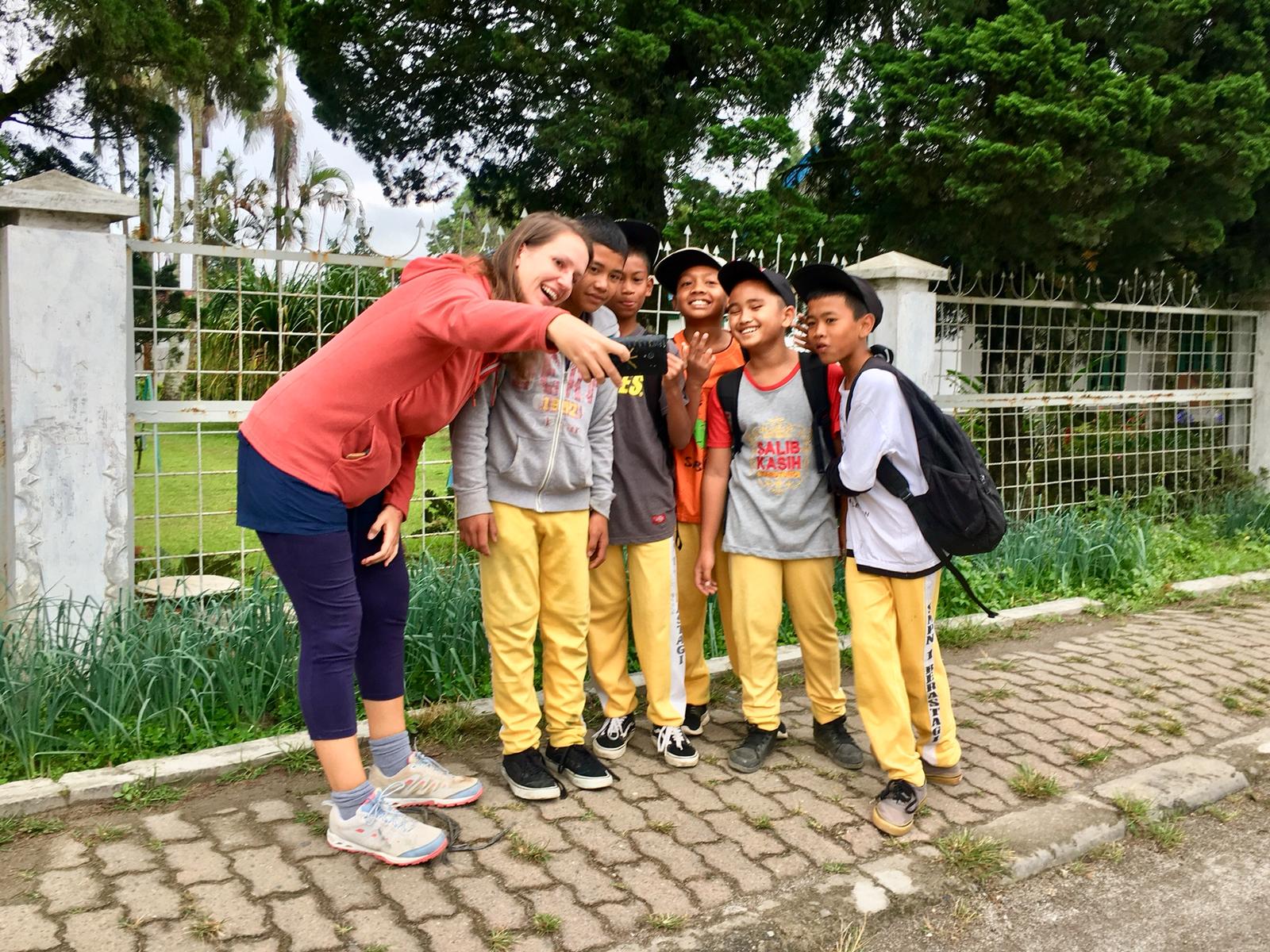
Do’s and don’ts
The people on Sumatra are super friendly and always in for a friendly chat. They will be extremely warm and respectful towards you. It is likely that you get invited for dinner. Here are some do’s and don’ts:
- Use your right hand to eat and shake hand. The left hand is considered dirty.
- Never touch someone’s head, not even a friendly padding on a child’s head. This is highly impolite.
- Avoid kissing and touching your partner in public. You are in a Muslim country. Such things should just be kept private.
- You will notice shoes and flip flops on the front porch of someone’s house, restaurants or shops. That’s because Indonesians take off their shoes when entering a house. So if you see a bulk or shoes in front, follow along and take off yours.
- Dress appropriately. Again you are in a Muslim country. The locals here dress rather conservatively and expect others to do the same. Christine’s rule of thumb is either sleeveless shirt and long pants, or a shoulder-covering/long-sleeved shirt with shorts.
- Many Indonesians greet each other with a handshake. After this the hand is led to the heart. Always use your right hand for greeting.
If you have any other questions for your trip to Sumatra, please contact us.

